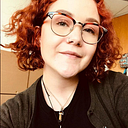The short film, ‘This is Not a Love Letter’, touches upon the subject of abortion, women’s resilience, and their unity
The subject of abortion has been taboo for a long time. In the US, Roe v. Wade was signed, effectively legalizing the procedure across the nation. But since the dawn of time, people worldwide still debate whether abortion should be a right of a woman.
This is Not a Love Letter is a story of one woman. It’s a poem, a manifesto of her personal experience regarding abortion. Directed by Ariel Zucker and written by Isabel Pask, This is Not a Love Letter is an emotional, deeply intimate portrayal of female resilience. It’s Chapter 3 of Open: A Spoken Word Series produced by CNT Productions. What makes it more interesting and heartbreaking is that the women featured in the video poem never heard Pask’s words before — their reactions to the words linger, and emotions take the lead as their faces express everything — from wonder, anger, tears, and laugh.
The short film features actresses that are quite vocal on their stand on women’s rights. Among them, we can see Victoria Pedretti (The Haunting of Bly Manor), Kennedy McMann (Nancy Drew), and Michelle Veintimilla (Seven Seconds, The Baker and the Beauty). The author of a poem shares her experience with everybody for the first time, including the characters in the film. As the music lingers in the background, we observe the reactions on the characters’ faces and stop for a moment. How many other women around us went through it and didn’t say anything in fear of being ridiculed, shamed, and judged? By telling her story, Pask assures us that the topic of abortion isn’t and shouldn’t be taboo. Words possess magical power. They can hurt, they can uplift and change one’s life. The creator uses its specific strength to heal, learn, and share with other women. Connect with them.
As well as Pask’s powerful poem, Zucker’s skilled hand in direction displays a beautiful, heartbreaking yet extremely influential picture. We see women of every age, race, and background coming together in unison. Although we don’t hear their words, we can see their support for one another and their quiet understanding. It’s a rather symbolic statement, stating that if we unite together, we could move mountains.
Although the main premise of This is Not a Love Letter is one woman’s abortion, we can translate it to so many different things. At one point, Isabel says, “I will learn how to write a love letter to myself.” We can translate it to so many times when women were ashamed of themselves and outright hated themselves because of what they hear in (mostly) media. This sentence resonates on a deeply personal level. We hear Isabel’s confession and observe women creating a community. At the same time, This is Not a Love Letter teaches us a lesson — you never know what the woman next to you went through. Don’t ever judge her actions.
When I viewed the short film, I couldn’t stop my tears. I was thinking that 1 in every 4 women get an abortion during the span of her life in the United States. And while I now live here, have a job and career, I couldn’t stop thinking about my mother, sister, and friends back in Poland.
The film resonated with me on a much personal level because of the brutal events that transpired in my home country last week. Constitutional Tribunal ruled past Thursday that ending the life of a deformed fetus is unconstitutional. It means abortion is only valid in rape or incest cases or to protect the mother’s life. Poland is already one of the strictest countries in Europe when it comes to abortion laws. About 100,000 women seek a termination abroad each year to get around the tight restrictions. When the news broke, thousands of enraged women and women’s rights supporters crowded the streets, marching in support of the right to legal abortion.
Films such as This is Not a Love Letter showcases the need to talk about this hard subject. As we talk about our experiences, the burden loses its power over us. We have a right to decide what to do with our bodies, and we will not be shamed. We need more people like Isabel, brave women who teach us and empower us.
We may not agree on things. We are all different and have different experiences. But this is our time to unite and listen to ourselves. Be kind to one another.
This is Not a Love Letter — you can watch it here.
